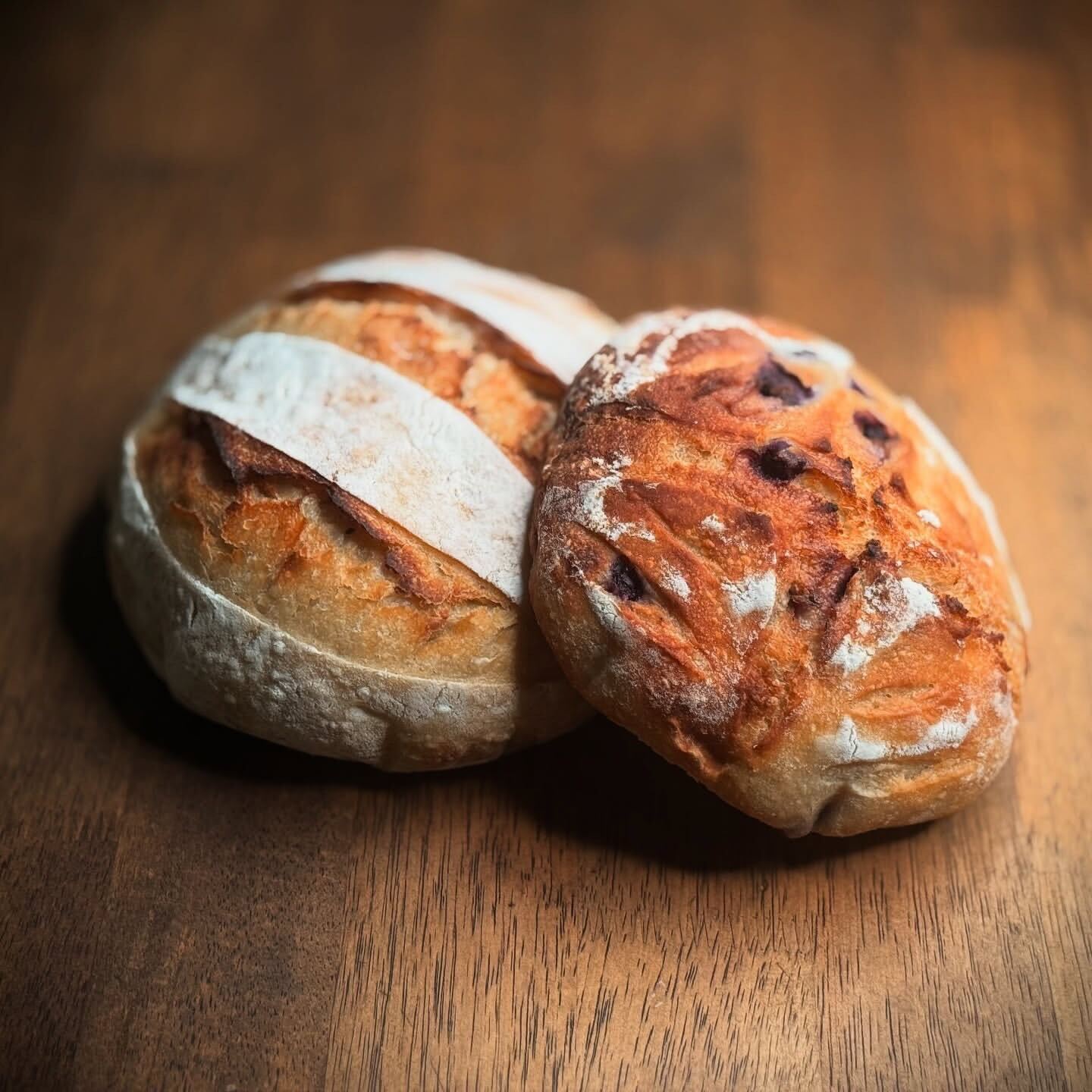
Why I Bake: Healing Through Homemade Sourdough
Hi, I’m Jessica — and this is the story of how I found comfort, connection, and purpose through a loaf of bread.
Last August, I lost my mom. My mom was the kind of person who made everything feel like home. She was always in the kitchen — apron on, hair pulled back, something warm in the oven. She believed that food was love, that meals were how we took care of each other, and that the best memories happened around the table.

After she passed, I felt completely lost. Grief is strange like that — it comes in waves, and it leaves you looking for something to hold onto. For me, that something happened to be bread. Specifically, sourdough. I don’t even remember what made me decide to start baking it. I typically wouldn’t eat bread daily. I just needed to make something and that something turned into sourdough.
Whatever the reason, I started with the basics. I found a simple starter recipe — just flour and water. And then I waited. I fed it every day, watching it bubble to life like magic. There’s something humbling about working with a living culture. It’s not instant. It’s not convenient. It can be a challenge. But it teaches you patience, and it asks you to slow down — two things I didn’t know I needed at the time.
Once my starter was strong, I began baking my first loaves. It took time to figure it out — when to stretch and fold, how to shape the dough, how long to bulk ferment. I’ve made plenty of weird, flat, over-proofed mistakes. But each attempt was still beautiful, and each loaf taught me something new — not just about bread, but about myself.
Now, sourdough is a regular part of our life. I bake 2–3 times a week, sometimes more if I’m gifting or experimenting with flavors. It’s become more than just therapy — it’s part of how I nourish my family.

And that’s the real heart of it: knowing what we’re eating. In a world where so much of our food is ultra-processed, full of additives, and designed for shelf life over health, there’s power in going back to the basics. Real bread shouldn’t have 25 ingredients. It doesn’t need to. When I bake sourdough, I know exactly what’s in it: flour, water, salt — maybe some add-ins if I’m feeling fancy (blueberries and lemon are a favorite around here).
ORDER JESSICA'S BREAD FOR PICK UP AT OUTPOST OCONEE
That matters. It matters for me, for my husband, and for our kids. We care more than ever about what we’re feeding our bodies. We want our children to grow up connected to their food, to understand how it’s made and where it comes from. Baking bread is a simple but powerful way to teach that — and to make something that feels like home, every single time.
Here’s a glimpse into my weekly process, in case you're curious or inspired to give it a try:
My Weekly Sourdough Rhythm
1. Feed the starter
I keep my starter in a jar on the counter or in the fridge, depending on how often I bake. A simple mix of equal parts flour and water gets it bubbly and ready to rise some dough. It takes about 4–6 hours to get active.
2. Mix the dough
Once my starter is ready, I combine it with flour, water, and salt. I let it rest (this is called the autolyse phase), then knead or stretch and fold the dough several times over a few hours to develop gluten.
3. Bulk fermentation
I let the dough rise in a warm spot for about 4–6 hours. It’s done when it’s puffed up and airy. I usually do a few gentle stretch-and-folds during this phase.
4. Shape and rest
After the bulk ferment, I gently shape the dough into a round or oval loaf and place it in a banneton (a proofing basket). Then it goes into the fridge overnight for a long, cold proof. This helps develop flavor and makes scoring easier.
5. Bake!
The next morning, I preheat my Dutch oven until it’s scorching hot, score the loaf with a lame (a little blade tool), and bake it at 460°F for about 30 minutes before I take the top off and drop the temperature down to 440°F for 10-15 minutes.

It’s a slow, intentional process — and that’s part of why I love it. In a world that’s always rushing, sourdough asks you to stop, to wait, to breathe. And in that stillness, I’ve found healing. I’ve found purpose. And I’ve found a new way to carry my mom’s spirit forward in our family.
So if you’ve ever thought about baking bread, I hope this gives you the nudge you need. You don’t need fancy tools. You don’t need experience. You just need time, a little patience, and a willingness to learn. The bread will come — and so will the peace.
Thanks for being part of our journey,
Jessica Deming
Outpost Oconee / Georgia Bushcraft



